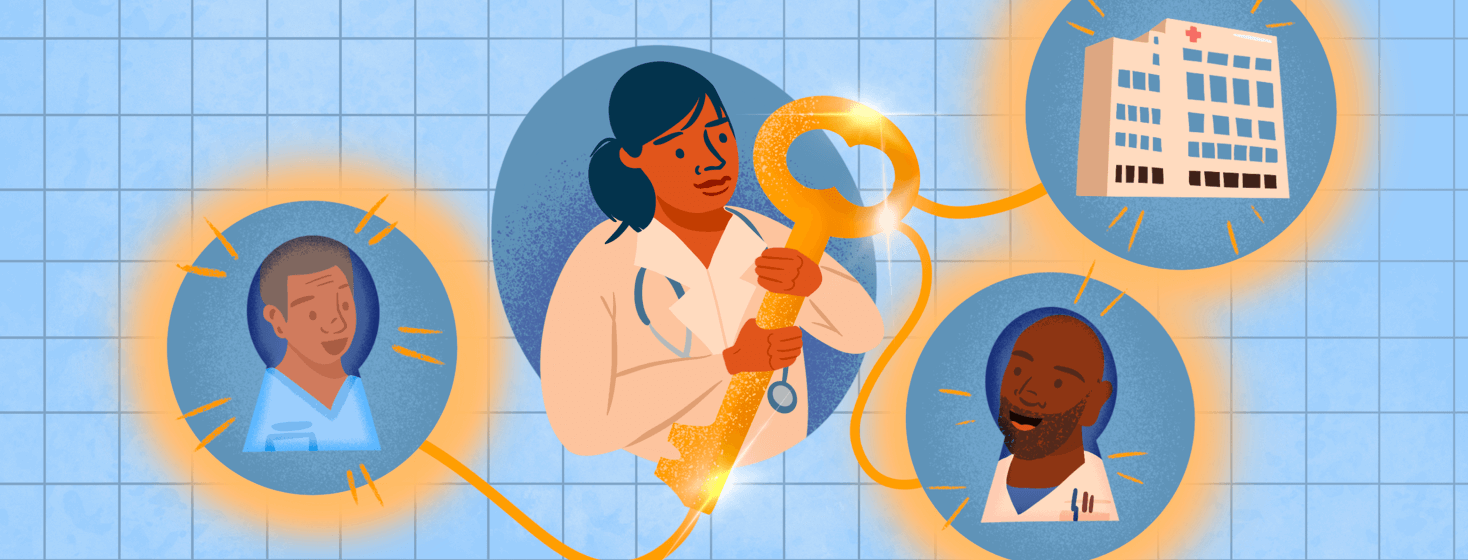Stories From Our CF Community: CF Care Team
People living with cystic fibrosis (CF) have unique needs that require comprehensive care from infancy to adulthood. A care team that includes different doctors and care providers ensures that people with CF receive the highest quality, most advanced care.1
In our 2020 Cystic Fibrosis In America survey, we evaluated what impact CF care teams have on people living with the condition. More than 700 people with CF and their caregivers completed the survey, providing valuable insight into how they feel about their CF care team.
CF care teams
A varied approach to CF care has the most benefit for people with CF and their families. A CF care team typically includes:
- CF specialist
- Pediatrician
- Pulmonologist
- Primary care physician (PCP)
- Social worker
- Nurse
- Nutritionist and/or dietitian
- Respiratory therapist
Who made the diagnosis
While the majority of CF diagnoses came from a CF specialist, other doctors often help in the diagnosis process. This includes pediatricians, pulmonologists, PCPs, and other providers.
Of respondents living with CF:
- 35 percent were diagnosed by a CF specialist
- 18 percent said pediatricians helped in the diagnosis
- 14 percent were diagnosed by a pulmonologist
However, a number of respondents living with CF – 22 percent – said they were unsure which provider diagnosed them.
Where people receive care
Most respondents shared that they receive care from a Cystic Fibrosis Foundation (CFF)-accredited care center or an academic medical center.
CFF-accredited care centers offer an elevated level of expert care that has led many people with CF to live much longer, healthier lives. There are more than 130 CFF-accredited care centers nationwide. Responses from community members show that 77 percent receive care from a CFF-accredited care center.2
Respondents living with CF also shared details on their doctor's affiliation:
- 70 percent receive care from a doctor at an academic medical center linked to a university or teaching hospital
- 12 percent receive care from a doctor at a community or local hospital
- 11 percent receive care from a doctor at a specialty treatment center that focuses only on treating specific conditions
Communication and satisfaction of care – the patient perspective
Our survey results show that 8 in 10 respondents feel comfortable discussing all aspects of their CF care with their doctor.
This level of comfort and ease is also evident in their overall satisfaction:
- 78 percent are satisfied with the CF care they receive
- 81 percent feel that their doctor clearly explains treatment options
Overall, respondents shared very positive aspects of their care:
- 75 percent receive easy-to-understand test results from their doctor
- 72 percent completely agree with their doctor about the severity of their CF
- 61 percent say that their doctor regularly discusses their quality of life with them
- Only 8 percent feel rushed during appointments
The caregiver perspective
Caregivers responded similarly when asked whether their family member or loved one’s CF care team clearly explained treatment options. In fact, 77 percent of caregiver respondents say they are satisfied with how treatment options are explained to them.
In addition, caregivers also reported satisfaction in the following areas:
- 76 percent agree with the doctor on the severity of their loved one's CF
- 75 percent receive easy-to-understand test results from doctors
- 73 percent are satisfied with the care provided by doctors
- 61 percent agree that their loved one's doctor regularly discusses quality of life with them
The 2020 Cystic Fibrosis In America Survey was conducted online from March through July 2020. The survey was completed by 404 people with cystic fibrosis and 230 people who are current caregivers.

Join the conversation